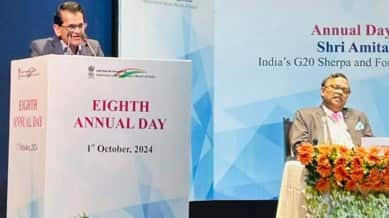The calls for revamping India’s Insolvency and Bankruptcy Code (IBC) have intensified amid rising concerns over long delays and significant haircuts faced by creditors. Since its introduction in 2016, the IBC aimed to streamline the insolvency resolution process, but various challenges have emerged, prompting stakeholders to reassess its effectiveness.

Source:- bbc news
Delays in the resolution process have been a significant issue, often taking several years to complete. This prolonged timeline not only undermines the financial health of creditors but also affects the overall business environment. In many instances, creditors are forced to accept steep haircuts, which negatively impacts their balance sheets and diminishes their ability to lend to other businesses. Recent reports indicate that haircuts can average over 50% in several high-profile cases, raising questions about the efficacy of the IBC in preserving value for stakeholders.
Source:- news 18
Industry experts have called for a comprehensive review of the IBC to address these shortcomings. Suggestions include streamlining the adjudication process, enhancing the capabilities of the National Company Law Tribunals (NCLTs), and ensuring better coordination between various stakeholders, including financial creditors and resolution professionals. Moreover, there is a growing consensus on the need for stricter timelines and more robust enforcement mechanisms to expedite the resolution process.
Additionally, incorporating a pre-packaged insolvency framework, which has gained popularity in other jurisdictions, could provide a more efficient alternative for businesses seeking resolution. This approach could help maintain business continuity while offering creditors a clearer path to recovery.
As discussions around the IBC evolve, the focus remains on creating a more resilient and effective insolvency framework that protects creditor interests while promoting entrepreneurship and economic stability. The urgency for reform reflects a broader recognition of the need for a balanced approach to insolvency and bankruptcy in India.
Share your views in the comments

